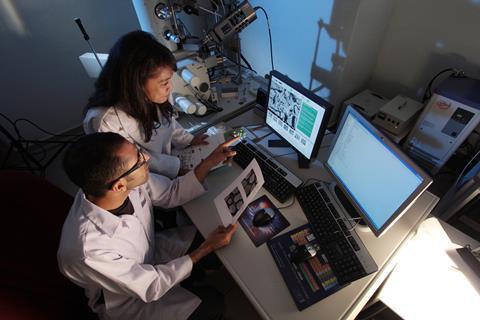Here Professor Nicola Stanley-Wall of the University of Dundee showcases the skills people develop while studying for a microbiology degree, and highlights the diversity of careers that graduates have transitioned to.
Studying for a microbiology degree is not just about learning lots of unpronounceable binomial names but about developing a wide range of skills, such as:
Skill 1
You will gain knowledge of the role and impact of microbes on human and animal health and our environment. Even if you are not directly using this knowledge in your career, the information should allow you to make productive choices about diet and healthcare.
Skill 2
Your critical thinking skills will be developed as you will need to learn how to identify which information you need to recall, and which content is less critical to recall immediately. This skill is transferable to any field.
Skill 3
You are likely to be tasked with writing an essay or report about a specific microbiology subject. This assignment challenges your ability to research a topic that is likely to span multiple scales of life, from the organism level to the molecular level. This process typically starts with desk-based research and is coupled with a deep dive into primary literature sources and review articles. An ability to pull out, and synthesise, relevant information from complex sources into a coherent narrative is a very strong asset.

Skill 4
Sterile technique is critical for many aspects of microbiological research. It allows you to identify specific bacterial/fungal species and conduct a wide array of analytical experiments. In many laboratory-based careers, being skilled in sterile technique will be critical, and if you work in healthcare settings it could help to save lives.
Skill 5
If you are not based in a laboratory, the attention to detail you developed while learning to execute experiments will be a skill that can be directed at a wide array of problems encountered in the workplace, such as critically reviewing a process to identify the point of failure or point for improvement.
Skill 6
Data collection and analysis are foundational skills for a microbiologist. Strong analytical abilities are directly transferable to many other careers and are needed if you remain in a laboratory environment. Identification of trends or outliers in data could save money and/or time, or reduce the impact of a process on the environment.
Skill 7
You will develop resilience, effective time management habits, and self-reliance as you navigate hurdles and challenges during your studies. These are all skills that will help you thrive in the workplace and beyond.

So where could these valuable skills take you?
A good proportion of the students I have worked with have progressed to study for postgraduate degrees, both at the Masters level and the PhD level. However, further education beyond an undergraduate degree is not a prerequisite for a fulfilling career and many other avenues of work are possible. Here are a few suggestions to get you thinking:
- An immediate career option that comes to mind is working in microbiological laboratories. These laboratories can be based in healthcare and veterinary contexts but are also frequently associated with wastewater and private laboratory settings. There are numerous ways of working in this sector, from being directly involved in sample analysis to advising treatment options for patients and animals.
- Knowledge of microbiology and its impact on human health can also be a stepping stone in the pathway to becoming a dentist or medical doctor, where patient contact is routine.
- Laboratory skills developed over the course of a microbiology degree are sought after by a wide array of biotechnological industries. The list of possibilities in this arena is diverse and ever-increasing. Our heightened awareness of the impact of microbiology on our health and environment, coupled with a desire and need to replace petrochemical-based compounds with sustainable options, contributes to growth in this sector.
- The breadth of skills developed doing a microbiology degree can also be applied to education, with options for teaching in primary, secondary, or further education settings becoming possibilities.
- Strengths gained in data analysis can open routes to careers in clinical research, health security agencies, and banking, to name a few of the options.
These are only a few examples of career options. Think carefully and critically about the skills you have developed. Try to transition from the ‘what have I done’ approach to the ‘what skills have I developed’ way of presenting the benefits of your degree to future employers.








No comments yet